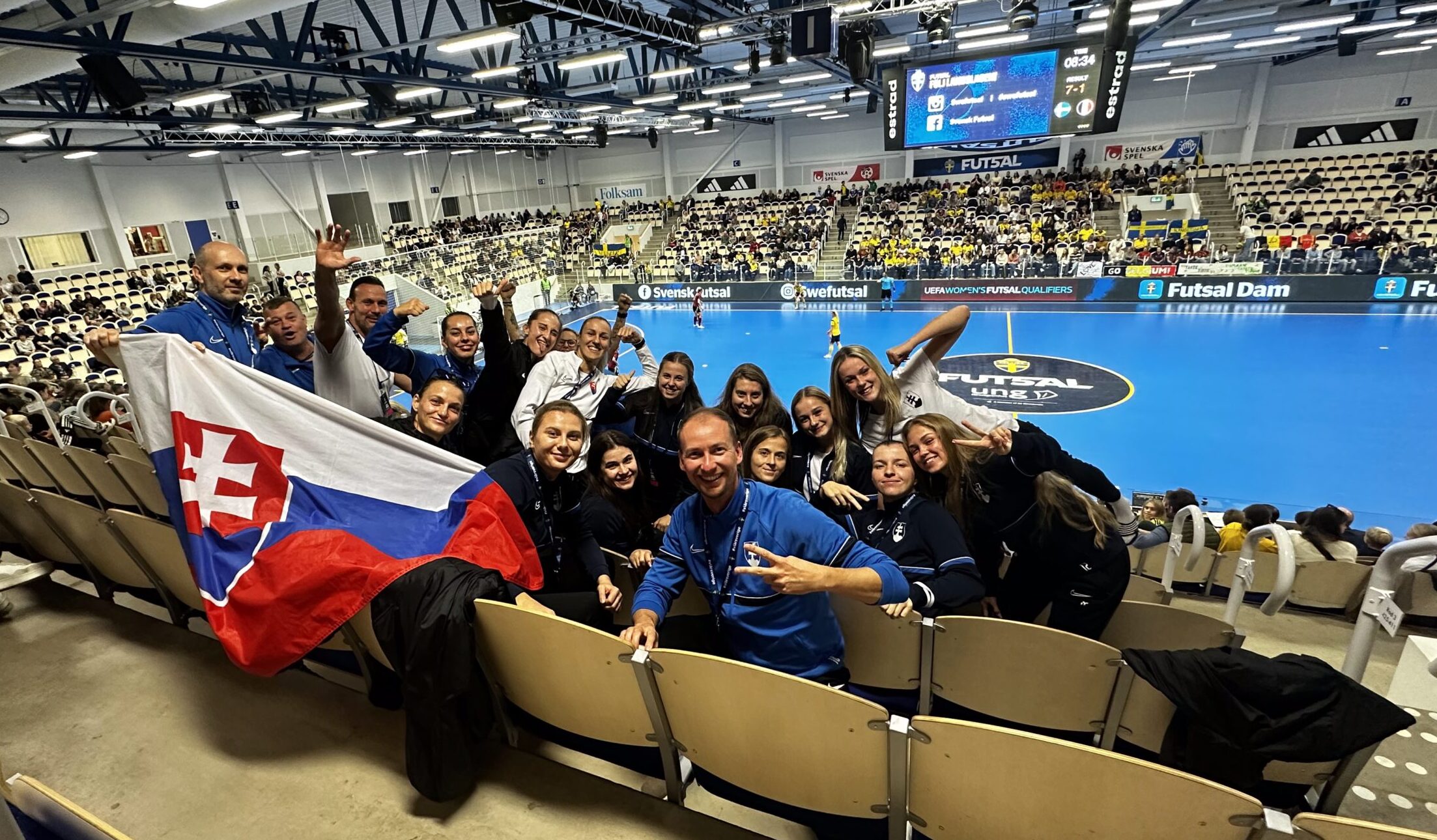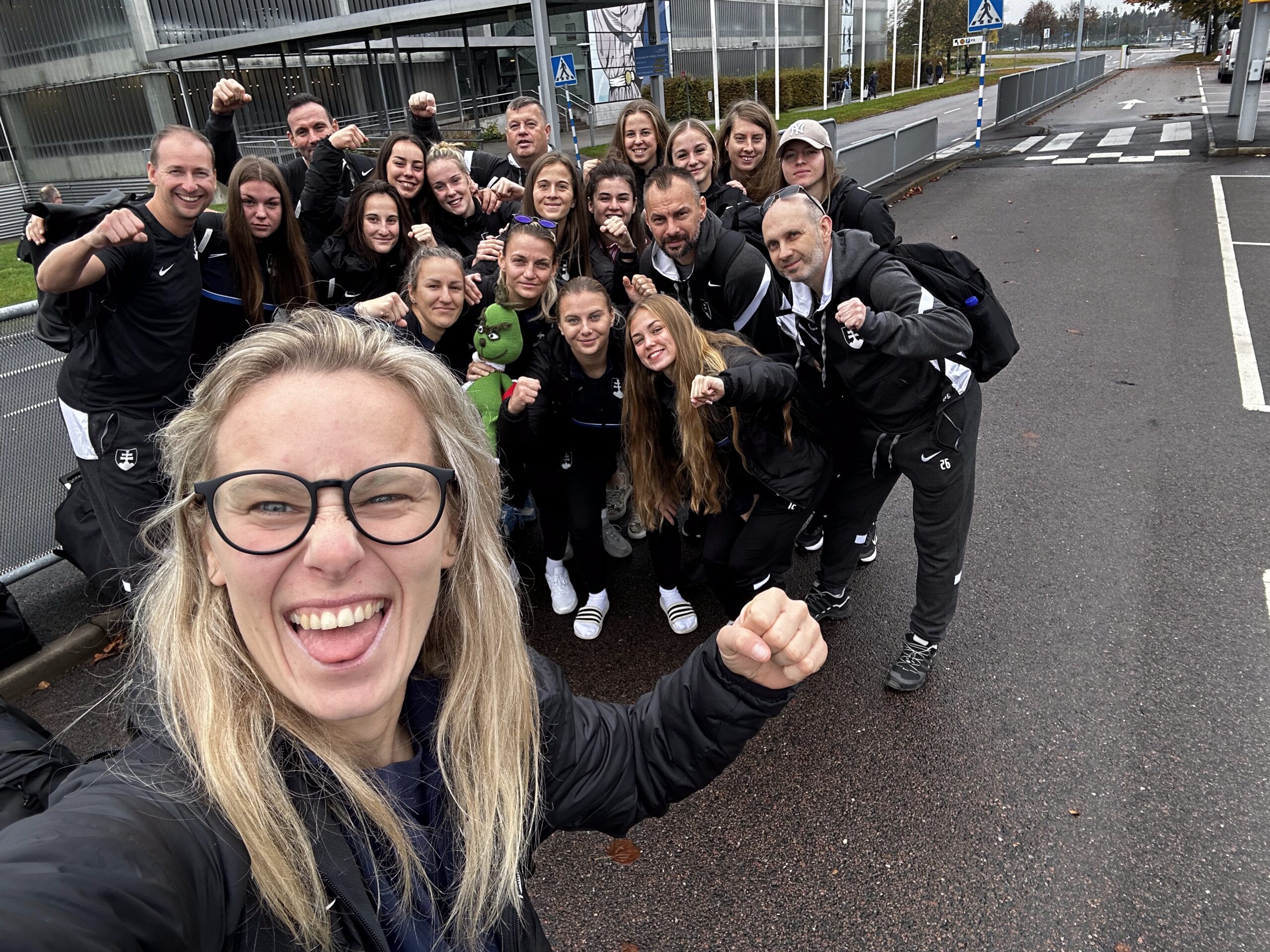Trust. Fight. Unity. The Rise of Slovakia’s Lionesses

Situational Analysis
Upon joining the team, I observed the following:
- The team was undergoing a generational transition, with a mix of young and experienced players.
- The group was partly in the Forming phase and partly in the Storming phase of team development.
- There was a visible tension between players and coaching staff, resulting in a defensive, blame-oriented atmosphere.
- Despite this, the team had high-quality, hardworking players and an open-minded coaching staff willing to listen and implement changes.
This represented an optimal moment of crisis, where accumulated frustration and suppressed emotions created the necessary momentum for change.
Initial Steps
To build trust before meeting in person, I organized a virtual team call three days prior to the camp. The purpose was to break the initial barrier and begin creating a sense of unity.
Activities included:
- Personal introductions
- Sharing lighthearted and embarrassing stories – with the coaching staff leading by example
- Laughter and openness, setting the tone for psychological safety
- Outlining the mental coaching plan and structure for the upcoming camp
Preparation Phase – Key Mental Insights
A detailed mental assessment revealed the following challenges:
- Unclear roles and responsibilities among the coaching staff
- Lack of clear, actionable instructions for players
- Overload of theoretical content without practical application
- High-stress communication style, perceived as overly aggressive
- Close peer-to-peer communication, but split into cliques:
- New vs experienced players
- Groups by club affiliation
However, there were also prior positive foundations. My colleague Karin Vravková had delivered two earlier workshops where the team discussed their legacy:
“How do we want to be remembered by our opponents?”
This question became a central anchor during our camp.

Interventions and Activities
1. Workshop with Coaching Staff
- Defined individual roles and responsibilities
- Mapped communication pathways
- Built alignment between players and coaches
2. Respectful Communication Framework
- We approached players with empathy, curiosity, and mutual respect
- Encouraged a two-way respectful communication model: players to staff and vice versa
3. Team Identity Reframe
- We asked:
“Why are we here today?”
“How do we want to remember this experience?”
- The goal was to create lasting positive memories based on unity and shared success
4. Individual Coaching Sessions
- 1-on-1 talks with each player
- Addressed personal concerns and mental distractions
- Helped players offload mental burdens to improve focus and performance
Tournament in Sweden – Execution Phase
- The coaching team aligned on daily structures, routines, and expectations
- Tactical game plans were co-created:
- The head coach had the final say
- Every team member contributed insights
- Full tactical buy-in from all players ensured clarity and cohesion
- My specific roles:
- Delivered pre-match team speeches
- Oversaw emotional regulation on the bench, especially managing reactions of coaching staff to avoid aggressive energy influencing players
Results
1. Although the team lost against Sweden, they played a balanced and competitive match, fully delivering on our mental and tactical goals:
- Fighting spirit
- Accountability
- Teamwork
- Mutual protection
- Embodied their new identity: “Lionesses”
2. Finished 2nd in the group – a significant achievement after a long period of unsuccessful results
3. Mental shift observed:
- From fragmented performance to unified team effort
- Restored trust and activated full team potential
4. Extremely positive feedback from the executive committee and external observers, confirming that:
- This team is capable of significantly better results and can compete with stronger opponents moving forward
Conclusion
This short but intense coaching engagement proved that mental preparation, respectful communication, and team alignment can transform a struggling team into a resilient, united, and high-performing group – even under extreme time pressure.